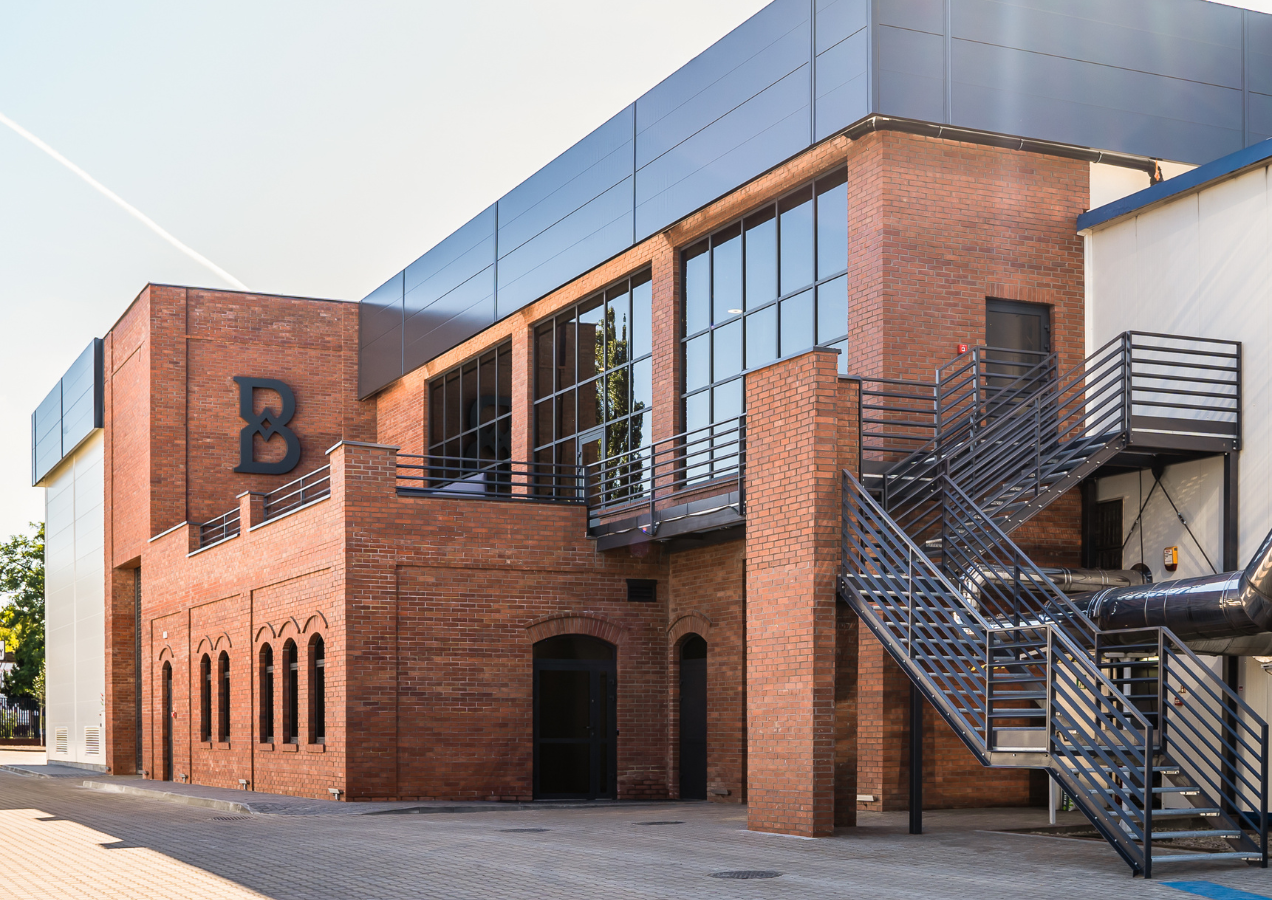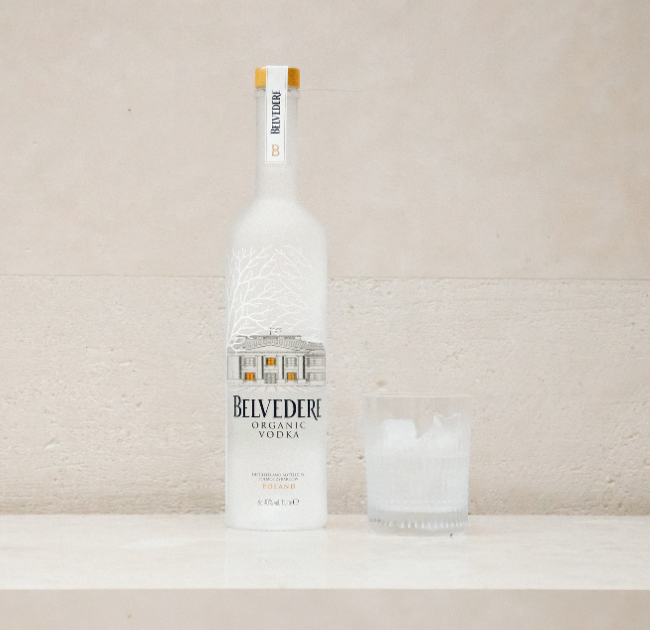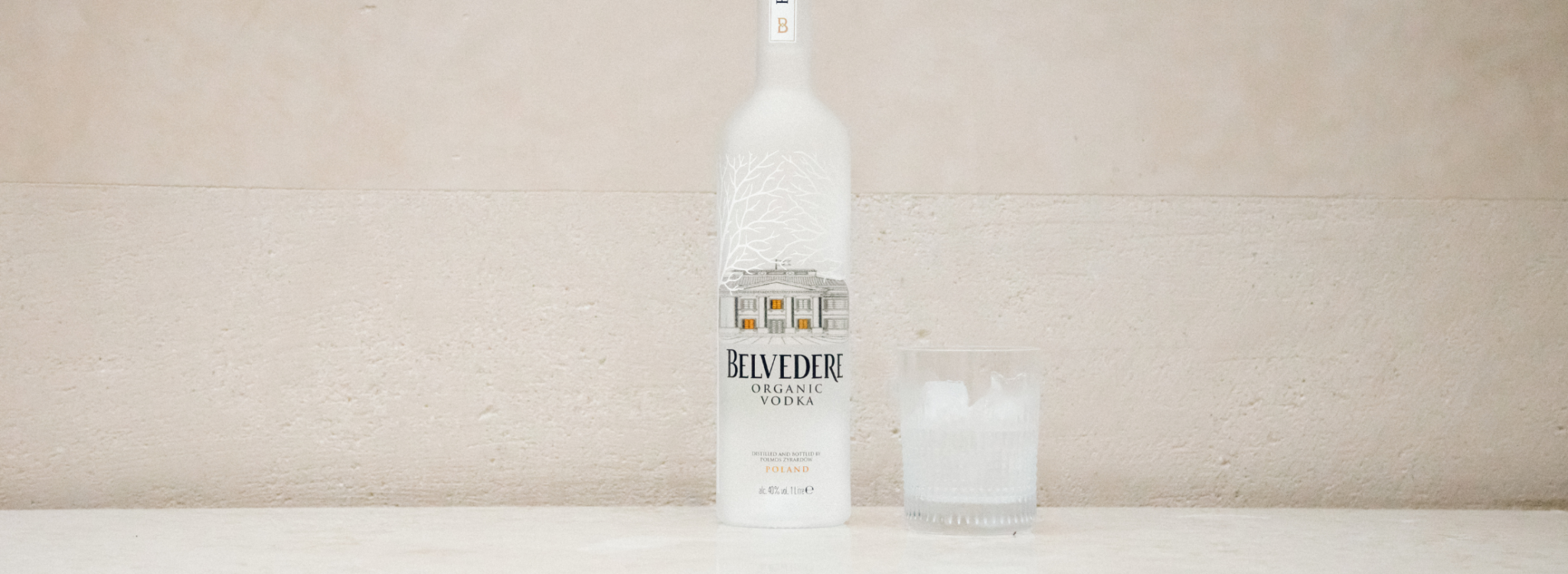PREMIUM DRINKS
BELVEDERE
Belvedere Vodka, the world's first super-premium vodka, is produced in one of the world’s longest operating Polish distilleries that has been making vodka since 1910. Famous for its commitment to craft and excellence, Belvedere is globally celebrated for its modern and stylish attitude that has redefined vodka since it was first launched. Belvedere’s distillers draw from a 600-year Polish vodka-making history to artfully craft rye into an extraordinary vodka of distinct taste and character.
SUSTAINABILITY PURPOSE
Belvedere is committed to being a modern distillery crafting the world's finest vodka while being the undisputed leader in sustainable development. Sustainability remains at the core of the brand's operations, while it continuously innovates. Belvedere Vodka Organic is one such innovation, showcasing the brand's firm quest for excellence. With global distribution at its core, this transition highlights the belief that only the finest-quality rye can reveal the true taste and character of the spirit. Moving into the organic category is a natural progression for the Belvedere brand. The organic certification ensures that Belvedere Vodka Organic is made only with ingredients farmed without artificial pesticides, additives, or chemicals, resulting in exceptional vodka. On the energy front, the Distillery has installed a pioneering biomass plant that generates 100% renewable energy, making the distillery energy self-sufficient and reducing its CO2-energy emissions to zero.

Established
1993
Headquarters
Poland
First Certified
2013
Employees
150-200
Categories
Premium Drinks
Website
Distribution
Worldwide
REAL CHANGE IN ACTION

ENERGY MANAGEMENT

In 2018, Belvedere Vodka achieved the ISO 50001 energy management system certification. The premium drinks brand, which was founded in 1993 and is based in Zyrardów, Poland, now uses renewable energy to power over 95% of its operations. Owing to its biomass capture facility and more than 600 photovoltaic solar panels installed at its distillery, the company’s annual energy efficiency and intensity targets have already been exceeded. In 2022, the biomass facility reduced 4,800 tonnes of carbon emissions during its first full year in operation. Meanwhile, the solar panels generate upwards of 300 kWp, which now cover everything from lighting to machinery. The company’s distillery, Polmos Zyrardów, has also been certified by BREEAM International and LEED as a sustainably built environment. Belvedere Vodka is fast approaching its 2030 carbon road map target to reduce the distillery’s carbon footprint by 51% from 2019 levels. This target also emphasises Green House Gas emission use reductions among raw spirit suppliers (80%) and bottle suppliers (20%).

WASTE MANAGEMENT

With a goal of becoming fully organic by 2025, Belvedere Vodka products are developed in accordance with Polish legislation; without additives and by using only Polish rye and pure water as ingredients. The company’s sustainability approach also consists of rigorously monitoring all forms of waste produced at the distillery. This includes focusing on the remnants of packaging materials, office renovations, and the ash from biomass production. Belvedere Vodka makes use of its biomass facility by recovering energy from wood chips, corn cobs, raw spirit residue, and algae. As a subsidiary of Moët Hennessy and the LVMH Group since 2007, Belvedere Vodka regularly audits its suppliers to ensure quality and food and drink safety. These include risk assessments of both waste and chemical product management. Key suppliers regularly transmit data on their respective waste production and associated reductions, recovery, reuse, and recycling.

DIVERSITY, EQUALITY AND INCLUSION

The Belvedere Vodka diversity, equity and inclusion (DE&I) approach prioritises unique differences, access to opportunities, and fostering work environments in which all workers, including external stakeholders, are valued, respected, and recognised. Internal research developed by the parent company, Moët Hennessy, demonstrates that diversity enhances innovation and enables teams to reduce risks. The DE&I research also shows that an inclusive organisational culture significantly raises the likelihood of meeting or exceeding financial targets, ensuring high job performance, and realizing optimal business outcomes. Their 2030 DE&I strategy seeks to establish gender parity across senior management functions by 2027. Starting in 2023, the company’s survey will measure a sense of belonging in the workplace. Additional key initiatives centre on DE&I training programmes, including unconscious bias and recruitment, and expanding supplier diversity worldwide. As part of LVMH, Belvedere Vodka requires all its suppliers to treat their workers equally and fairly, which is a business requirement that also applies to private recruitment agencies.
In 2018, Belvedere Vodka achieved the ISO 50001 energy management system certification. The premium drinks brand, which was founded in 1993 and is based in Zyrardów, Poland, now uses renewable energy to power over 95% of its operations. Owing to its biomass capture facility and more than 600 photovoltaic solar panels installed at its distillery, the company’s annual energy efficiency and intensity targets have already been exceeded. In 2022, the biomass facility reduced 4,800 tonnes of carbon emissions during its first full year in operation. Meanwhile, the solar panels generate upwards of 300 kWp, which now cover everything from lighting to machinery. The company’s distillery, Polmos Zyrardów, has also been certified by BREEAM International and LEED as a sustainably built environment. Belvedere Vodka is fast approaching its 2030 carbon road map target to reduce the distillery’s carbon footprint by 51% from 2019 levels. This target also emphasises Green House Gas emission use reductions among raw spirit suppliers (80%) and bottle suppliers (20%).
With a goal of becoming fully organic by 2025, Belvedere Vodka products are developed in accordance with Polish legislation; without additives and by using only Polish rye and pure water as ingredients. The company’s sustainability approach also consists of rigorously monitoring all forms of waste produced at the distillery. This includes focusing on the remnants of packaging materials, office renovations, and the ash from biomass production. Belvedere Vodka makes use of its biomass facility by recovering energy from wood chips, corn cobs, raw spirit residue, and algae. As a subsidiary of Moët Hennessy and the LVMH Group since 2007, Belvedere Vodka regularly audits its suppliers to ensure quality and food and drink safety. These include risk assessments of both waste and chemical product management. Key suppliers regularly transmit data on their respective waste production and associated reductions, recovery, reuse, and recycling.
The Belvedere Vodka diversity, equity and inclusion (DE&I) approach prioritises unique differences, access to opportunities, and fostering work environments in which all workers, including external stakeholders, are valued, respected, and recognised. Internal research developed by the parent company, Moët Hennessy, demonstrates that diversity enhances innovation and enables teams to reduce risks. The DE&I research also shows that an inclusive organisational culture significantly raises the likelihood of meeting or exceeding financial targets, ensuring high job performance, and realizing optimal business outcomes. Their 2030 DE&I strategy seeks to establish gender parity across senior management functions by 2027. Starting in 2023, the company’s survey will measure a sense of belonging in the workplace. Additional key initiatives centre on DE&I training programmes, including unconscious bias and recruitment, and expanding supplier diversity worldwide. As part of LVMH, Belvedere Vodka requires all its suppliers to treat their workers equally and fairly, which is a business requirement that also applies to private recruitment agencies.

